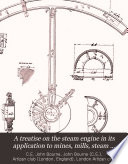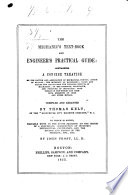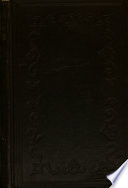 | Septimus Norris - Locomotives - 1852 - 356 pages
...11-55 Ibs- per circular inchTo find the Horses- power of MI Engine, according to Mr- Watt-s ruleFrom the diameter of the cylinder in inches, subtract 1,...piston in feet per minute, and divide the product by 5040- The quotient will be the number requiredGENERAL PROPORTIONS OF CONDENSING ENGINESCylinder —... | |
 | John Bourne (C.E.) - Steam engineering - 1853 - 344 pages
...be computed by the following rule: — Multiply the square of the diameter of the cylinder in inches by the velocity of the piston in feet per minute, and divide the product by 6,000 ; the quotient is the number of nominal horses power. In using this rule, however, it is necessary... | |
 | Septimus Norris - Locomotives - 1854 - 334 pages
...11*55 Ibs. per circular inch. To find the Horses' power of an Engine, according to Mr. Watt's rule. From the diameter of the cylinder in inches, subtract...by 5640. The quotient will be the number required. GENERAL PROPORTIONS OF CONDENSING ENGINES. surface is then least, in proportion to the content of steam.... | |
 | Mechanical engineering - 1855 - 420 pages
...capacity, and steam at any density required. Mule. — Multiply 375 times the area of the cylinder in feet by the velocity of the piston in feet per minute, and divide the product by the volume of steam to 1 of water at the density required, (see Table, page 91 ;) and the quotient... | |
 | Oliver Byrne - Engineering - 1863 - 600 pages
...computed by the following rule : — Multiply the square of the diameter of the cylinder in inches by the velocity of the piston in feet per minute, and divide the product by 6,000 ; the quotient is the number of nominal horses power. In using this rule, however, it is necessary... | |
 | Steam-engines - 1865 - 580 pages
...PRESSURE BOLLER. RULE. — Multiply the square of the diameter of the cylinder in inches by the speed of the piston in feet per minute, and divide the product by 14,000. The quotient is the proper area of the safety valve in square inches. Example. — What is... | |
 | Andrew Betts Brown - Engineering - 1865 - 456 pages
...square inches, of the steam port, is to multiply the square of the diameter of the cylinder in inches by the velocity of the piston in feet per minute, and divide by 4,000. " It might also be observed that the length of the link from centre to centre should be at... | |
 | John Bourne (C. E.) - Steam engineering - 1868 - 602 pages
...the diameter of the cylinder, multiply by the i effective pressure per square inch, and by the motion of the piston in ; feet per minute, and divide the product by 42,017, which gives the ^ same result. Fig. 97. represents an indicator diagram taken from HMS Spiteful,... | |
 | A. Prestwich - 1880 - 122 pages
...the same result with less figures : Multiply the square of the diameter of the piston by the speed of the piston in feet per minute, and divide the product by 6000. Example : — 30 30 900 240 36000 1800 6000)216000(36 HP 18000 3600 3600 NOTE. — The reason... | |
 | Michael Reynolds - 1882 - 366 pages
...occasions. To find this common multiplier, multiply the area of the piston in inches, by the speed of the piston in feet per minute, and divide the product by 33000. The quotient equals the common multiplier, or the number of horse-power that each pound of effective... | |
| |